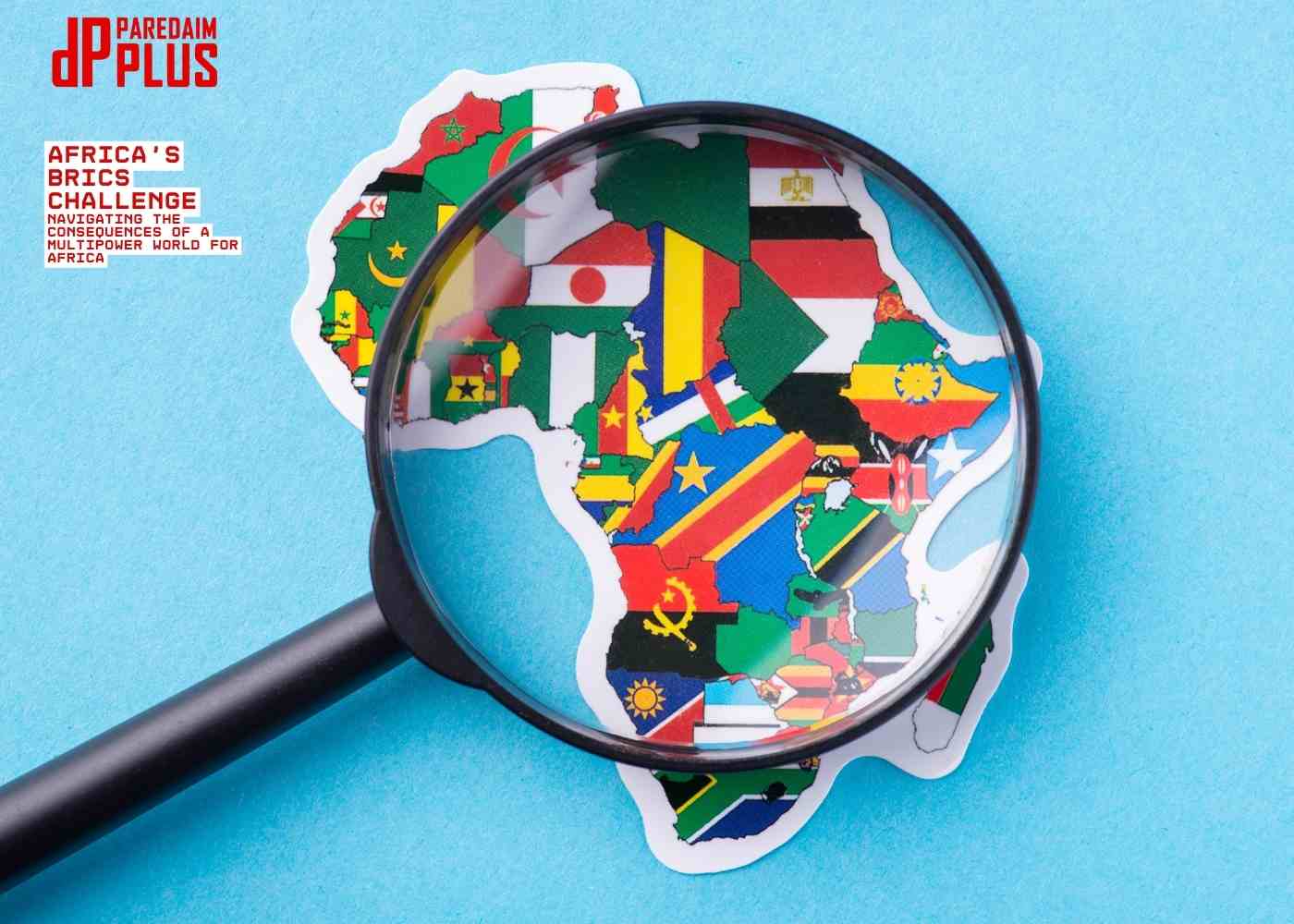
In 2020, ShopRite, the South African retail giant, headlined
when the company left Nigeria 15 years after operating in the country. ShopRite
had reached a high of approximately 25 stores throughout Nigeria, and more than
2,000 Nigerians had been employed by the company when it was at its height, and
had become synonymous with modern shopping, aired aisles, imported products,
and the sensation that people get when shopping during the weekend. But, notwithstanding
all these trappings, the bottom line was risky. It was losing revenues, its
operating expenses had been skyrocketing; imported products were scarce;
inflation and currency devaluation were devastating blows. Finally, the parent
company, with its headquarters in South Africa, decided to sell all of its
operations in Nigeria to a local investor (Ketron Investment Limited). Although
ShopRite is still in Nigeria, the model is being redefined.
It is not just a tale of disappointment. It is a tale of how
even market leaders have to evolve or bow out, not out of a lack of strength,
but in many cases, as a strategic move. Based on the case of ShopRite Nigeria,
this paper shall discuss the reasons why large international business models
may fail in such turbulent conditions as those in Nigeria, how localization and
adaptation may make or break the success and what the global multinational
companies (and even local companies) may learn.
Background: What Went Wrong for ShopRite in Nigeria
ShopRite Nigeria had some of the following pressures that
accumulated in the background:
1. Increased operating expenses: Power (generators, fuel),
importation of goods (shipping, tariffs), and maintenance of infrastructure
swelled costs.
2. Currency devaluation and inflation: The fall in value of
the naira saw the cost of imports skyrocket, leaving margins. The cost of sales
and forex losses increased due to the devaluation of consumer goods companies
in Nigeria (See how Nigerian consumer goods firms experienced the increased cost
of sales and forex losses associated with devaluation).
3. The buying power of consumers reduces: Inflation and
devaluation imply that many Nigerians have less disposable income; the demand
for imported or high-quality products decreased.
4. Mismatch between foreign model and local culture/economy: ShopRite applied big format hypermarkets, fixed prices, mixes of imported
products, and buying in large quantities, which would have conflicted with the
Nigerian consumer culture (shopping in smaller units, enjoyment of freshness
and local products, bargaining, etc.).
Major Lessons to the Nigerian Ecosystem and International Business.
What can companies working (or intending to work) in such an
environment as Nigeria learn from the experience of ShopRite? These are some of
the lessons which are applicable in the local and international context.
1. Growth ≠ Just Expansion. Growth = Fit + Flexibility
Being a big company with a high number of shops or a big
footprint does not ensure sustainability. The fit to the local context of the
business model is of more importance, and the ability to pivot in circumstances
where assumptions (cost, currency, consumer behaviour) are no longer true.
During volatile economic times, inflexibility is fatal. A
company able to change its pricing, product mix, purchase and supply chain
within a short time is in a better position.
2. Localization is a Non-Negotiable
- Local sourcing: Decreasing the reliance on imports through
sourcing locally assists in the hedging of foreign exchange fluctuations and
disruption in the supply chain. The CFOs of most firms in Nigeria are trying to
enhance the local input materials or more exports as hedges.
- Cultural adaptation: The local standards of shopping
frequency, the size of the package to buy (the sachet economy), taste, belief
in the freshness or locally made items.
- Regulatory/environmental fit: It is better to know about the
local regulations, taxation, and infrastructure restrictions (power, roads),
and political risk.
3. Financial Strategy & Currency Risk
- The devaluation of the currency would make the profits
negative overnight. This resulted in massive FX losses and increased finance
costs for many companies in Nigeria.
- Hedging (where applicable), structuring of a contract such
that risks are shared, pricing can vary, or localized inputs which result in
lower exposure.
- Diversifying sources of revenue: exports or developing
products based on stable currencies (when the companies are capable of that),
or services that are less susceptible to imports.
4. Exiting Isn’t Always Failure
Strategic resets can be exits. In the case of ShopRite,
selling foreign ownership and retaining the brand, starting over with local
ownership, and reinventing procurement and operations are options that can
allow preserving value and capacity to emerge stronger.
There are occasions when it is better to walk away than to
remain in an unprofitable scale and use the resources.
5. Agility & Scenario Planning
Fluctuating macro-economic environments (currency
fluctuations, inflation, new regulations) require scenario planning: What would
happen should inflation were twice? What would happen if foreign exchange
access is limited?
Those firms that can respond (e.g. alter supply chains,
renegotiate leases, alter product lines) benefit.
Nigeria as Compared to the World: How it is Mirrored
Although the story of ShopRite is Nigerian, most of the
pressures are global, particularly in the emerging/developing markets:
- Currency risks, inflation, and reliance on imports also
apply to Latin America, some parts of Asia; global corporations in such regions
tend to prosper when they can learn how to localize and hedge their money.
- Shocks in the global supply chain (e.g. in COVID-19) were a
demonstration of the vulnerability of import-based models when faced with a
disruption in shipping, tariffs, or foreign exchange.
The world is changing its consumer demands: there is a
growing demand towards being affordable, trustworthy, local and authentic, and
sustainable. Only specific segments can be served by imported or, rather,
premium models.
How ShopRite Nigeria is Resetting and What Can Work Going Forward
According to the recent reports, ShopRite Nigeria, under new
ownership, is doing some of the right things. Key moves include:
- Enhancing local supply chains: Procurement of products over
80 per cent locally. This stabilises the cost, as well as creates goodwill with
the local producers.
- Affordable and resilient rebuilding: Modifying product
mixes, pricing, potentially small-store, potentially smaller and more
responsive to local demand formats.
- Stressing cultural relevance: The Nigerian customer wants to
know what is truly important to him (freshness, local brands, trustworthy
produce, value for money, reliability).
These changes are in harmony with what most observers view
as what FMCG (Fast Moving Consumer Goods) companies in Nigeria need to do:
abandon imported inputs, localise sourcing, customise packaging, and currency
risk management.
Broader Implications for Global Businesses Operating in Emerging Markets
These are the global best practices to internalize in case you are a multinational planning entry into markets such as Nigeria, or in case you are also a local business going global:
|
Practice |
Why It Matters |
How to Do It |
|
Localization of supply & product |
Reduces exposure to FX risk and builds local loyalty |
Partner with local suppliers; develop product variants suited to
local tastes; use smaller packaging units |
|
Flexible financial & risk management |
Helps absorb macro volatility |
Use hedging; price contracts in safer currencies; keep cost structure
adaptable; maintain reserves |
|
Consumer insights & cultural strategy |
Builds relevance and trust among customers |
Do qualitative research; adjust store format, branding, promotion to
local culture; empower local teams |
|
Agility in operations |
Because policy, regulation, inflation, etc., change fast |
Scenario planning; modular store formats; diversified sourcing; readiness
to pivot models |
|
Pragmatic growth |
It’s better to grow deep than wide |
Focus on profitable segments; avoid building huge scale if it costs
more than it returns; exit or reorganise when needed |
Conclusion
The experience of ShopRite in Nigeria is not merely a tale
of an out-of-market retailer, but a series of cautionary tales and practical lessons for businesses worldwide in unstable settings, particularly for those operating in Africa and other emerging economies. The factors
that ShopRite had to contend with include currency devaluation, inflation, high operating costs, and not aligning with the local culture, which are not
exclusive to the company. It is the reaction of the businesses: do they want to
impose some foreign model, or to adapt, localise, reset?
In the case of Nigeria, in particular, we are observing that
localization, supply chain resilience, financial strategy and cultural fit are
not arbitrary but core. The new reset of ShopRite under Nigerian ownership is a
live case study of how a business can learn, retrench where necessary,
re-adjust to the realities of the local area, and yet have the potential to
succeed.
All companies venturing into emerging markets in the world
are advised to incorporate adaptation capacity, cultural intelligence, and financial
hedging during their initial stages. And also very vital- be prepared to leave
or transition when the model you are in now cannot be maintained. Since
occasionally, wise retreating is the preliminary to a far more powerful attack.






